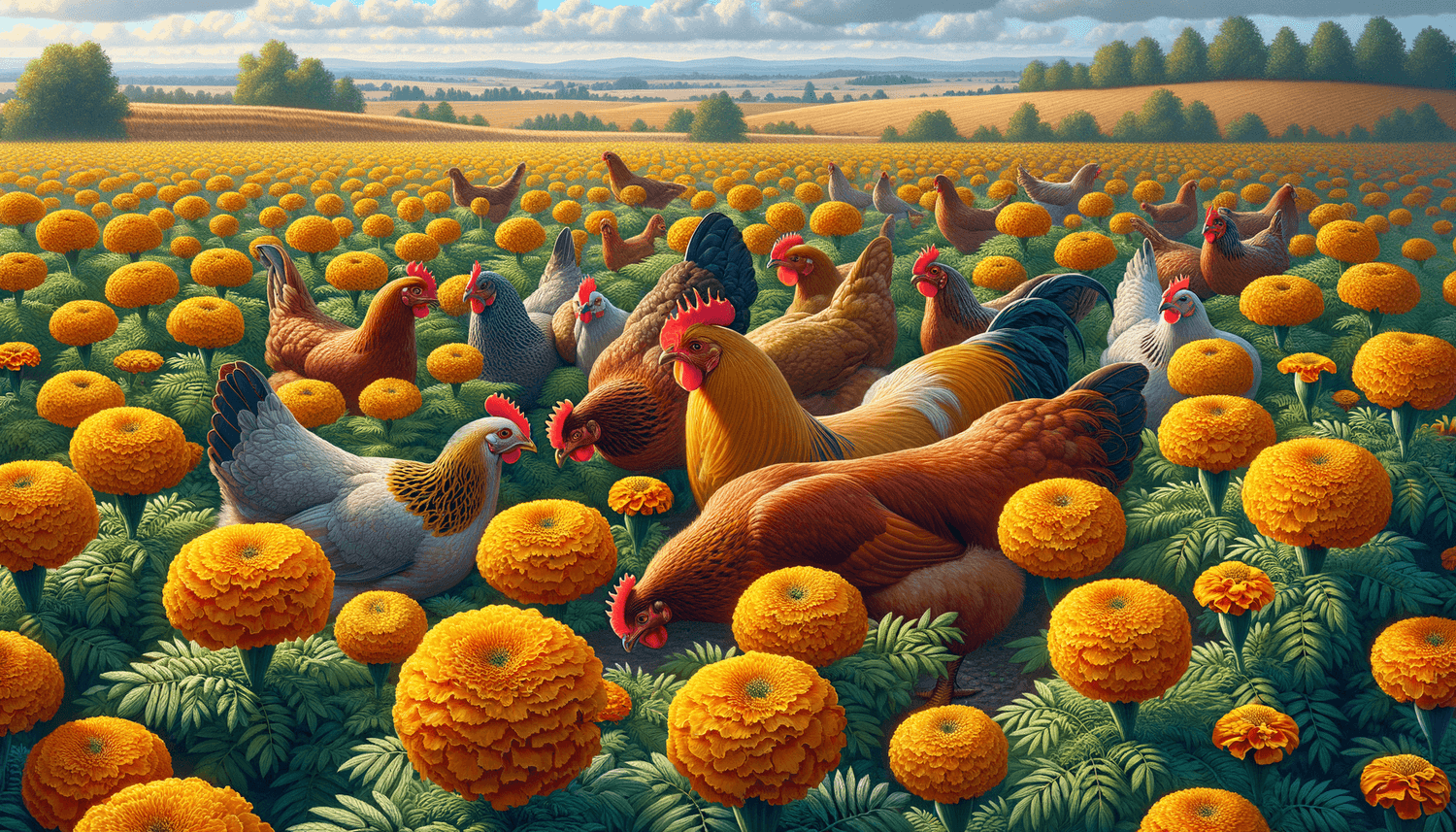Yes, chickens can eat marigold plants. Marigolds are considered safe for chickens and can be a healthy addition to their diet due to their high content of antioxidants, which can benefit the chickens’ immune system and skin health.
Quick Summary
- Chickens can eat marigold plants.
- Marigolds are safe and contain antioxidants beneficial for chickens’ health.
- There are no significant risks associated with feeding marigolds to chickens in moderation.
- Marigold plants should be given as a treat and not replace a balanced diet.
Overview of Marigold Plants
Marigold plants are flowering plants known for their bright orange and yellow blooms. They contain numerous nutrients, including antioxidants such as lutein, which can contribute to improving the health and appearance of chickens’ skin and egg yolks.
Benefits and Risks of Marigold Plants for Chickens
Marigolds provide health benefits to chickens primarily because of their antioxidant properties. They can also enhance the color of egg yolks. However, marigolds should be administered in moderation, as excessive consumption could lead to nutrient imbalances, though this is rare.
Feeding Guidelines
When feeding marigold plants to chickens, they should be offered in moderation, alongside a well-balanced diet. Fresh marigold flowers can be scattered in their coop or run for them to peck at as a treat.
Alternatives
If marigold plants are not available, other safe flower alternatives for chickens include nasturtiums, roses, and sunflowers, which also offer similar health benefits and are enjoyable for chickens to eat.
Expert Opinions
Poultry nutritionists and veterinarians agree that marigold plants can be a nutritious treat for chickens. Studies have noted the benefits of marigold extract in poultry feed to enhance egg yolk color due to its lutein content.
Frequently Asked Questions
After exploring whether chickens can eat marigold plants and discussing the benefits, risks, and guidelines, here are some common questions readers might have.
Can marigold plants improve the color of my chickens’ egg yolks?
Yes, marigold plants contain lutein, which can contribute to a deeper coloration of egg yolks when chickens consume them.
Are there any parts of the marigold plant that chickens should avoid?
Chickens can safely consume the petals and leaves of marigold plants. However, as with any treat, it should not replace their regular, balanced diet.
How often can I give my chickens marigold plants?
Marigold plants should be given as a treat and offered sparingly, perhaps a few times a week, within the context of a varied and nutritionally adequate diet.

















